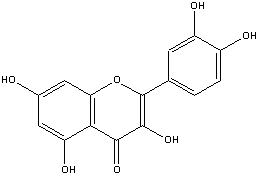

Ginkgo Biloba is the most widely known of all the herbal supplements available today. This supplement is prescribed everyday to millions of people around the world. In France and Germany it is one of the most frequently prescribed medications. It is known for its benefits against deterioration of cognitive skills, Alzheimer's disease, intermittent claudication, depression, impotence, vertigo, asthma, diabetes, and migraine headaches.
Where does it come from?
Ginkgo Biloba (frequently called
'ginkgo') hails from the Ginkgoaceae tree family. Ginkgo is the longest
living species of tree. Fossil records of the trees date back more
than 200 million years. Ginkgo trees typically live up to 1000 years
and are found in China and in the southern and eastern parts of the United
States. The first publishing of its use dates all the way back to 2800
B.C. At that time, Pen T'sao Ching brought to light its use to treat
respiratory infections. In 1950, Dr. Willmar Schwab in West Germany,
used a concentrated extract of ginkgo biloba leaves in order to determine
a balance for medicinal purposes.
What are the active ingredients?
There a several compounds that
contribute to ginkgo's results. They are the flavone glycosides,
kaemp-ferol, quercetin, isorhamnetin, and proanthocyanidins. Two
other compounds unique to ginkgo are alcohol-soluble terpenes that are
known as ginkgolides and bilobalides. These two compounds aid in
the improving of circulation. However, there are also present ginkgolic
acids which are believed to be very toxic.

Quercetin
Is it safe?
Unlike most herbal supplements
ginkgo biloba has been widely researched on animals and humans. There
have even been clinical safety trials. If ginkgo is used at the doctor
recommended
dosages, there are typically no significant adverse reactions. The
less purified compounds are the ones that are most likely to cause side
effects. Some of these side effects include headache and gastric
upset. It is important to mention that consumers should always consult
their doctors before taking ginkgo products due to the severity of the
diseases it is known to treat. For example, although ginkgo is known
to help dementia it should not be the first method of treatment employed.